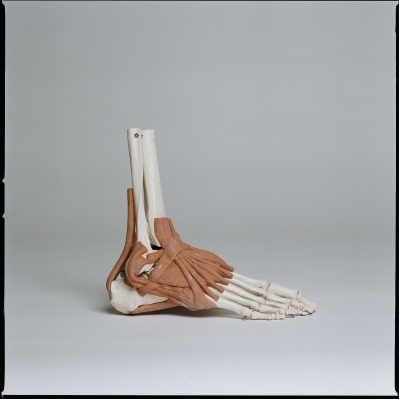Washington Case Law Update: Injured Worker Responsible for Defective Condition Barred from Recovery from Landowner
Washington Case Law Update: Injured Worker Responsible for Defective Condition Barred from Recovery from Landowner
From the desk of Kyle D. Riley: Under premises liability law in Washington, a landowner owes a duty of care to invitees that requires the landowner to inspect the premises and warn or remedy any dangerous conditions. But where a worker hired to perform repairs is injured by a dangerous condition he was hired to repair, will the court find that the landowner breached a duty of care owed to the worker? Read on to find out.
Claims Pointer: In this case arising out of a worker who lived on the property while making repairs on the property, the court held that the landowners owed the worker the same duty of care owed to invitees. However, because the worker had superior knowledge of the dangerous condition and was hired to remedy the dangerous condition, the court held that the landowners did not breach the duty of care owed to the worker.
McGee v. Graziano et al., 50046-9-II, Washington Court of Appeals Div. II (January 23, 2018) (unpublished)
Dan Graziano and Joyce Farley Graziano (collectively “the Grazianos”) managed a property for Eric Stroh. In early November 2015, the Grazianos hired Jeff McGee (“McGee”) to “rip up the carpet, tack strips and padding” on the property in exchange for $300. In late November, the Grazianos again hired McGee, this time to perform other remodeling work and prepare the floor for hardwood finishing. McGee was paid $2,500 and given the right to live on the property while working. While McGee was living on the property, a different worker who had been hired to finish the hardwood floors was in and out of the house for a few days. At one point, while McGee was staying on the property, he stepped on a carpet staple and punctured his toe. McGee’s toe became infected, and eventually, his foot and leg had to be amputated.
McGee sued the Grazianos, Eric Stroh, and EDJ Properties, LLC (collectively “Defendants”). McGee alleged that he was an invitee and that Defendants owed him a duty to adequately maintain and inspect the premises and to warn him of unsafe conditions. Defendants moved for summary judgment, and the superior court granted their motion. McGee appealed.
The Washington Court of Appeals determined that Defendants owed McGee the same duty that landowners owe to invitees. Invitees are classified as either public invitees or business invitees. A business invitee is one who is invited to “enter or remain on the land” for a purpose that is either “directly or indirectly connected with business dealings with the possessor of the land.” A landowner could be liable for negligence to the invitee if the landowner:
(a) knows or by the exercise of reasonable care would discover the condition, and should realize that it involves an unreasonable risk of harm to such invitees, and (b) should expect that they will not discover or realize the danger, or will fail to protect themselves against it, and (c) fails to exercise reasonable care to protect them against the danger.” (emphasis added).
Pursuant to the standard set out above, McGee argued that Defendants had constructive notice; meaning that the dangerous condition existed for a period of time that would give the landowner sufficient opportunity to properly inspect and remove or remedy the dangerous condition. McGee alleged that Defendants should have inspected the property between the time he pulled the carpet (in early November), and by the time he moved in (late November) to ensure the property was safe. The court, however, was more concerned with the fact that McGee had superior knowledge over Defendants regarding the carpet staples. Because McGee was responsible for removing carpeting, it was reasonable for Defendants to rely on McGee to “apprise them of any hazardous condition resulting from carpet staples.” Consequently, the court concluded that Defendants did not owe McGee a duty to inspect the property between the time that McGee finished removing the carpeting and moved into the house.
The court further noted that landowners are not liable for a dangerous condition if the invitee had superior knowledge of the dangerous condition and the invitee was hired to remedy the condition. The court looked to a previous case where the plaintiff, a roofer hired to repair defendants’ patio cover, was injured when the patio cover collapsed. Because the roofer had superior knowledge of the patio roof and its condition, and because defendants hired the roofer to make repairs on the patio cover, the landowners were not “required to know of defects the repairs were intended to discover and remedy.” The court stated that similar to the roofer, McGee had superior knowledge of the potential danger posed by the staples remaining in the floor after he had removed the carpeting. Because McGee was hired to remove carpeting, it was reasonable for Defendants to expect that McGee would remedy dangers posed by the carpet staples. Further, the court noted that McGee was the one who caused the hazardous condition by not removing all carpet staples. Accordingly, the court held that Defendants did not breach their duty of care owed to McGee, and upheld the superior court’s decision.
NOTE: This opinion has not been published. It is provided to demonstrate how the court approaches the issues involved in the case. It cannot be cited as authority to a court of law.
View full opinion at https://www.courts.wa.gov/opinions/pdf/D2%2050046-9-II%20Unpublished%20Opinion.pdf
Case updates are intended to inform our clients and others about legal matters of current interest. They are not intended as legal advice. Readers should not act upon the information contained in this article without seeking professional counsel.
To email Kyle Riley, please click here.
To view the most recent Oregon Law Update: No Safe Harbor Protection in Dispute over Reasonable and Necessary Medical Services, please click here.

















